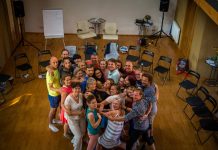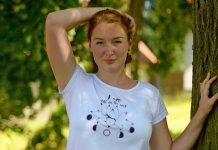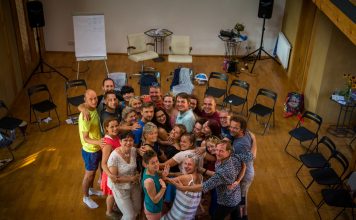For the clinic’s founder, Artyom Tolokonin, ensuring good health for the capital’s super-rich inhabitants is even better for his pocket book. The 33-year-old psychoanalyst says that about a dozen residents of the Rublyovka neighbourhood — dubbed Moscow’s Beverly Hills — are paying for year-round treatments costing as much as a million dollars (636,000 euros) a time. “They say you can’t buy health, but yes you can, since we sell it,” he tells AFP at the facility, which opened in February in Rublyovka’s so-called Valley of Dreams area.
Visitors pass a police post and surveillance cameras, before having their street shoes clad in clean overshoes, and entering a hallway gently illuminated by liquid-like jets of light. Multiple flat TV screens broadcast images of the countryside along to specially composed anti-stress music. Everything at Neo Vita is done to pamper not only the bodies, but the egos and reputations of patients. Examination room doors remain unmarked “so as not to advertise our clients’ problems,” as Tolokonin explained.
Clients even more keen on privacy can use a discreet side door. One, a well known businessman, according to Tolokonin, has even paid 200,000 dollars (127,000 euros) to reserve the entire place to himself when he visited his doctor.
“People able to pay 10,000 dollars (6,360 euros) for an hour of psychoanalysis are a very specific sort,” said Tolokonin, who has practised in the Rublyovka neighbourhood for six years. The services on offer at Neo Vita, which has 20 specialists, are also rather specific — and they’re not all to do with typical complaints. “We heal the soul before moving on to the physical problems,” Tolokonin said.
Given the nature of the clinic’s patients, few are willing to talk openly.
However, Natalya, 30, who would not give her last name and said she worked “in tourism,” said she and her husband, “who works in the gas sector,” visit Neo Vita every week. “Basically we pay a little less than 10,000 dollars (6,360 euros) an hour,” she said. “But health is more valuable than money.”
Natalya, who said she was 10 years younger than her husband, praised the gynaecological room and its pink-leather examination chair, adding that she hoped that sessions with the psychologist would help her get pregnant.
Tolokonin said the extraordinary prices were justified. “The rich go to London for a dentist or a popular dietician in Switzerland, but their soul can only be healed here.” Russian billionaires have the same problems as their counterparts elsewhere — fatigue, insomnia, substance abuse, impotence — but “Western psychoanalysts don’t know the Russian mentality,” Tolokonin said.
“I know my clients by heart: I earn as much as they do, I live with them, I ski with them. I think if my client is able to throw away a million dollars (636,000 euros) in a night, then I should be able to treat him for two million,” Tolokonin said. “If he has a castle in Monaco, but can’t find love, then I wouldn’t be effective if I weren’t charging him the equivalent of a castle.”
Tolokonin claims to have saved a dozen or so marriages, even if he failed with a 2006 open newspaper letter to persuade Roman Abramovich, then Russia’s richest man, and his wife Irina to come for counselling before their divorce.
Olga Ivankina, a general practitioner working at Neo Vita, said “I feel more responsibility with the rich. They always verify their diagnosis.”
Ivankina, 36, rushed off to her latest patient. He had a flu. The treatment? That old favourite of every Russian mother: lots of fluids and “eat plenty of strawberry jam,” Ivankina said.


































